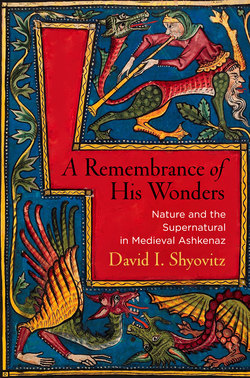A Remembrance of His Wonders

Реклама. ООО «ЛитРес», ИНН: 7719571260.
Оглавление
David I. Shyovitz. A Remembrance of His Wonders
Отрывок из книги
A Remembrance of His Wonders
Published in association with the Herbert D. Katz Center for Advanced Judaic Studies of the University of Pennsylvania
.....
But despite “bending over backward to contain randomness itself within the ambit of a purposeful natural order,”151 the scholastics found that, despite their best efforts, there remained observable phenomena stubbornly impervious to rational inquiry.152 These thinkers arrived, by necessity, at a compromise position. Thomas Aquinas, for instance, posited the existence of a middle ground between the natural and the supernatural, which he called the “preternatural.”153 In theory, preternatural objects and phenomena had natural qualities and operated in accordance with reason; but in practice, the scholastics admitted that they remained ignorant of the inner workings of these marvels. The invention of the category of the preternatural was to some extent a face-saving measure—it allowed the scholastics to remain committed to the proposition that everything had a rational explanation, while nonetheless admitting that there were phenomena that still needed to be more completely understood.
An object or phenomenon could fall into the category of the preternatural for a variety of reasons: for example, it might be subject to chance, to an unpredictable confluence of natural forces that cause it to behave as it does. The most common explanation, however, for why a preternatural phenomenon behaves as it does was the imputation to it of “occult qualities.” This designation, which continued to be invoked until well into the early modern period,154 essentially meant that the reason an object behaved in a certain manner was natural but inexplicable according to the known laws of natural causation. Or, to use the more technical language of the scholastics themselves, an occult quality was the “specific form” of an object or phenomenon, which conferred its particulars upon it; this stood in contrast to the “manifest properties” of natural objects, which could be accounted for by reference to their elemental composition. Scholastic thinkers sought to account in this manner for the routine, predictable, yet mysterious workings of seemingly supernatural phenomena.155
.....